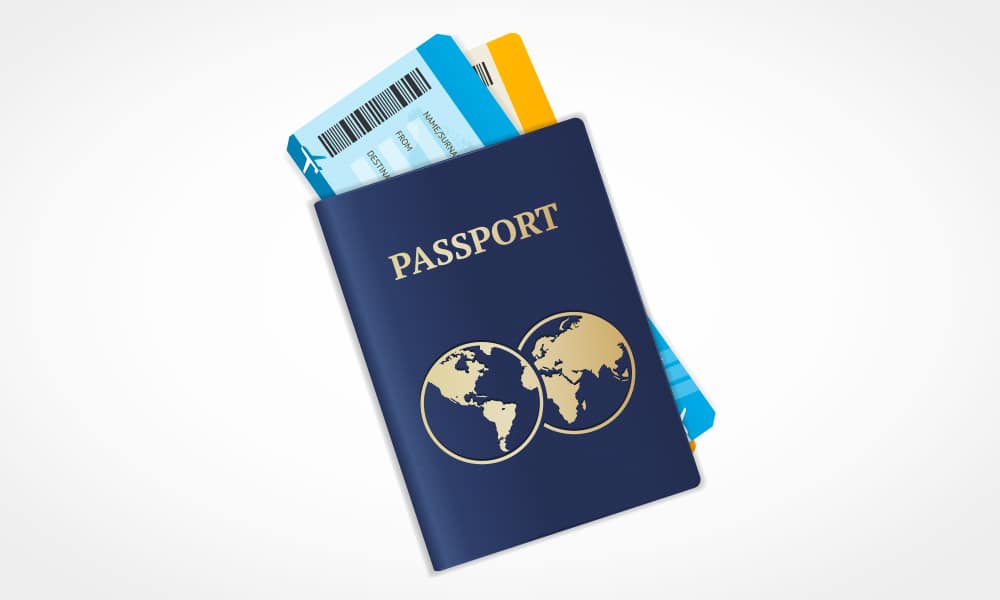


Does any of the traveller have any pre-existing medical condition like BP, diabetes etc? See what it means ›
Now covers COVID-19
Things to Know Before Visiting Sri Lanka
Sri Lanka is a small island nation located off the southern coast of India. It offers lush tea plantations, ancient temples, pristine beaches, and vibrant wildlife. Sri Lanka has a traditional culture, with Buddhism being its primary religion. When travelling to Sri Lanka, you should know about the storms and floods that hit the country regularly or the civil unrest it has faced in recent years. This guide tells some essential things to know before visiting Sri Lanka.
Travel Insurance Plans on PolicyBazaar#1
- Individuals
- Sr. Citizens
- Students
Sri Lanka at a Glance!
Sri Lanka has been a popular tourist destination for Indian tourists because of the cultural similarities between the two countries. In early 2022, Sri Lanka faced high inflation, which caused massive civil unrest and halted tourism activities in the nation. However, the Sri Lankan government started getting its tourism back on track by receiving 302,844 Indian travellers in 2023.
This number was boosted because Sri Lanka waived the visa fees in October 2023 for travellers from seven countries — India, China, Russia, Thailand, Sri Lanka, Malaysia, and Japan.
This detailed guide will tell you some essential things to know before travelling to Sri Lanka. These include airports, Sri Lanka visa requirements, driving license information, budget estimates, and the best time to visit:
| Categories | Specification |
| Major Airports | ✅ Bandaranaike International Colombo Airport ✅ Mattala Rajapaksa International Airport |
| IDL Requirement for Tourists | ✅ You need an International Driving Licence as a foreign traveller to drive in Sri Lanka. |
| Minimum Budget for 1 Person | ✅ INR 1,591 to 4,270 per day |
| Average Temperature | ✅ 21.1 - 35 ℃ |
| Best Time to Visit | ✅ May to September (North and East regions) ✅ November to March (South and West regions) |
| Driving Side | ✅ Right Side |
*Please note that the costs are subject to change as per the current rate of conversions.
Sri Lankan Visa Requirements for Indian Nationals
One of the most essential things to do before visiting Sri Lanka is to obtain a visa for tourism, business, or transit purposes. The easiest way for Indian nationals to secure a visa is through the Electronic Travel Authorization (ETA) system.
Upon approval, Indian travellers are issued a visa on arrival at the airport, valid for up to 30 days for tourism and business purposes. A transit visa is also available for a maximum stay of 2 days. However, the ETA does not cover long-term residence or employment — these require a separate application at a Sri Lankan Embassy.
Indians with an approved ETA must present their passport, a confirmed return or onward travel ticket, and proof of sufficient funds to enter Sri Lanka.
Visa fees vary depending on the type and duration of the visa applied for:
- Tourist Visa (30 or 90 days) — INR 1,681
- Business Purpose Visa (30 or 90 days) —- INR 2,521
8 Things to Know About Sri Lanka
Sri Lanka offers vast coastlines with beautiful beaches, giant statues of Buddha, and rich wildlife. This guide will help you with some essential things to know before going to Sri Lanks:
-
No Alcohol on Full Moons and Religious Holidays
Sri Lanka observes many public holidays, many of which are linked to the full moon, known as Poya days. These days hold great significance in Sri Lankan Buddhism, and almost half of the country's public holidays fall on a Poya day. On such days, the sale of alcohol is strictly prohibited in shops, restaurants, and bars across the country.
This restriction is also in place during critical religious festivals like Vesak in May. However, travellers can still get some alcohol from their hotel room's mini bar.
-
Tipping is Customary
Tipping in Sri Lanka is a customary practice. A 5-10% restaurant tip is polite if no service charge is added. Small tips for hotel staff, drivers, or guides are welcomed and can enhance their income. Some hotels add a 10% tip to your bill as a standard. While tipping is not expected in every setting, it is a thoughtful way to show appreciation for good service.
-
Mosquito and Insect Repellents
Mosquitoes in Sri Lanka can carry dengue fever, so using strong insect repellent is essential. Opt for repellents with high levels of DEET, especially during dawn and dusk when mosquitoes are most active. Be aware of sand fly bites as well because of the danger of Leishmaniasis.
Cover yourself with long sleeves and trousers, and sleep under a mosquito net for protection. Staying vigilant helps reduce the risk of bites and severe illness.
-
Beware of Traffic
Beware of traffic in Sri Lanka, as it can be chaotic and dangerous. Reckless driving, particularly by private buses, is daily, and pedestrians should remain cautious. Roads are often crowded with tuk-tuks, motorcycles, and even animals.
Expect slow travel times due to narrow streets and heavy traffic, especially in busy and coastal areas. Always stay alert when walking or driving, and consider hiring a local driver to navigate safely.
-
Natural Disasters
Natural disasters in Sri Lanka are common and often hazardous and include flooding during monsoon seasons, landslides in highland areas, and occasional tropical cyclones. While early warning systems have been installed in major towns after the 2004 tsunami, rural areas may still be vulnerable.
Stay informed about weather conditions and potential risks through local sources and the Disaster Management Center website, especially if visiting remote regions.
-
Do Not Drink the Tap Water
Avoid drinking tap water in Sri Lanka as it is not of drinking standards. Use bottled, filtered water, but always check the seal is intact and look for the Sri Lanka standards certification mark. Most hotels in Sri Lanka provide clean drinking water, and refilling a reusable bottle from large filtering containers is a more eco-friendly option.
-
Local Customs and Etiquette
When visiting Sri Lanka, respect for local customs is vital. Modest clothing is appreciated, especially when visiting religious sites — cover your shoulders and knees. Always treat depictions of the Buddha with respect, and avoid posing for photos near statues. Use your right hand when eating, as it's customary for meals.
Public displays of affection and disruptive behaviour should be avoided, and swimwear should only be appropriate for the beach. Be considerate when taking photographs, always ask for permission, and remember that some religious or military sites may have restrictions.
-
Go Stilt Fishing
Stilt fishing in Sri Lanka is a traditional technique predominantly practiced along the southern coast. Fishermen perch on a crossbar known as a "petta," anchored to a vertical pole in shallow waters, allowing them to cast lines without disturbing fish.
This skillful method, requiring patience and balance, has deep cultural significance and showcases the strong connection between locals and the sea. From November to April, the best time to witness this iconic sight is in areas like Koggala, Ahangama, and Kathaluwa.
Travel Tips for Sri Lanka
When travelling to Sri Lanka, understanding things like commuting methods, packing necessities, and health advisories for the country makes your trip safe and memorable. These practical things to know before going to Sri Lanka will make your Sri Lankan itinerary a safe and hassle-free experience:
-
Commuting in Sri Lanka
Scenic train journeys connect major cities like Colombo, Kandy, and Galle, offering affordable and picturesque routes. Public buses are budget-friendly but bumpy, while private buses provide more comfort. Tuk-tuks are ideal for short trips, providing a quintessential Sri Lankan experience.
You can hire a private driver, offering flexibility and local insights for convenience. Self-driving isn't recommended due to challenging road conditions. During monsoon seasons, trains are often the best choice, as heavy rains affect road travel.
-
Emergency Contacts
Knowing emergency service contacts in the country you plan to visit is essential. Here are some emergency contacts you can use in Sri Lanka if you run into trouble:
- Police Emergency Hotline - 118/119
- Ambulance/Fire & Rescue - 110
- Tourist Police - 011-2421052
These contacts will help you in any emergency in Sri Lanka.
-
Packing Essentials for Sri Lanka
When packing for Sri Lanka, include a light jumper for cooler highland evenings and early mornings, especially between December and March. A sarong is versatile as a beach blanket, temple cover-up, or an extra layer on air-conditioned transport.
Bring modest clothing covering your legs, shoulders, and upper arms for religious sites. Don't forget socks; you must remove shoes when visiting temples, especially on hot days.
-
Safety Tips for Travellers
Sri Lanka is generally safe for travellers, but precautions are still necessary. Petty crime is rare, but using hotel safes and securing valuables is wise. Female travellers should avoid walking alone at night.
Be cautious of scams in tourist areas like Galle Fort and Kandy, and always agree on tuk-tuk fares in advance. Stay vigilant around wildlife, especially elephants, and give them plenty of space.
-
Wi-Fi and SIM Options for Tourists
Staying connected in Sri Lanka is easy. Buy a tourist SIM card from significant providers like Dialog Axiata and Mobitel at Bandaranaike International Airport (Colombo). You'll need your passport for registration and local currency to make the purchase. Coverage is reliable in cities and coastal areas but can be spotty in the hills and national parks.
For quick internet access, many cafes and hotels offer WiFi hotspots. You can also top up data easily at convenience stores or through provider apps.
-
Travel Insurance
As per Sri Lankan laws, foreign travellers are not required to have travel insurance. However, one of the most important things to do before going to Sri Lanka is to get travel insurance. Sri Lanka has faced massive civil unrest and violent protests in recent years, so it is highly advisable to get travel insurance covering accidents, medical expenses, thefts, etc.
-
Vaccination Requirements
Sri Lanka is a tropical country, so the vaccination requirements are naturally higher than in some other countries. When travelling to Sri Lanka, you need to consult your doctor for the following vaccines:
- Chickenpox
- Measles-Mumps-Rubella (MMR)
- Polio
- Typhoid
- Hepatitis - A
- Hepatitis - B
- Yello Fever
- Japanese Encephalitis
*Disclaimer: All costs are approximate and are subject to change at the time of travel.
FAQs
-
Q1: Is smoking allowed in public places in Sri Lanka?
Ans: No, smoking is prohibited in most public places, whether indoor or outdoor, especially in small hotels and restaurants. -
Q2: Can you use an Indian WhatsApp number in Sri Lanka?
Ans: Yes, you can use your Indian WhatsApp number in Sri Lanka with an internet connection and access to your Indian SIM card. -
Q3: Do you need to carry cash in Sri Lanka?
Ans: Yes, carrying cash in Sri Lanka is advisable. Use Sri Lankan rupees for local shops, tuk-tuks, and tipping. ATMs are common, but keep smaller denominations handy. -
Q4: Is Sri Lanka safe for solo female travellers from India?
Ans: Yes, Sri Lanka is generally safe for solo female travellers from India. It has been reported as a good and secure destination for females travelling solo from India.
STANDARD TERMS AND CONDITIONS APPLY. For more details on risk factors, terms, and conditions, please read the sales brochure carefully before concluding a sale.
Policybazaar Insurance Brokers Private Limited, Registered Office - Plot No.119, Sector - 44, Gurgaon, Haryana - 122001 | CIN: U74999HR2014PTC053454 | Policybazaar is registered as a Composite Broker | Registration No. 742, Valid till 09/06/2027 | License category - Composite Broker | Contact Us | Legal and Admin Policies
* Price shown is for a 30 day trip to Sri Lanka with 50,000 dollar coverage for an adult of age 25 years



















































